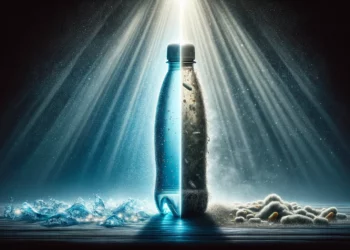After sustained pressure from scientists and environmental groups, the Environment Protection Agency (EPA) has announced it will start regulating the presence of two compounds in the drinking water — compounds linked to cancer and several other health problems.

The government agency will start controlling a group of chemicals known as perfluoroalkyl and polyfluoroalkyl (or PFAS), known for their persistence in the environment and the human body. EPA will specifically regulate two compounds, PFOA and PFOS, which are banned in the US.
“Under President Trump’s leadership, EPA is following through on its commitment in the Action Plan to evaluate PFOA and PFOS,” EPA Administrator Andrew Wheeler said in a statement, welcomed by environmental groups – who have questioned Trump for rolling back environmental regulations
The decision means the start of a two-year period for EPA to establish a new maximum contamination level. Once proposed, there will be another 18-month period before it kicks in. Now, the EPA suggests water shouldn’t have more than 70 parts per trillion (ppt) of PFAS, but this isn’t mandatory.
This has led to many states in the last few years implementing their own guidelines and limits for PFAS in drinking water, much tougher than EPA’s suggestion. For example, in California, the limit is 13 ppt, while in Minnesota it is 15 ppt and in Vermont 20 ppt.
“The decision shows that an avalanche of public pressure and overwhelming science is finally forcing EPA to act,” Melanie Benesh with the Environmental Working Group said in a statement. Benesh and other environmental groups estimate it might take up to four years for EPA to get a new standard in place.
A report by the US Environmental Working Group (EWG) warned in January that the presence of PFAS in water was much worse than initially thought. The substance was found in every state except Hawaii, with the highest levels being reported in Philadelphia, New Orleans, and Miami.
The PFAS substances are known as the “forever chemicals” as they persist in the environment and the human body for decades. They have been linked to a growing list of health problems, such as several types of cancer, liver damage and low weight levels on newborn babies.
“EPA needs to move quickly to prevent chronic disease by halting the use of the entire class of these industrial toxins until they are proven safe,” Mindi Messmer, co-founder of the New Hampshire Safe Water Alliance, said in a statement. “Every single day, these chemicals continue to contaminate the air and water.
The chemical substances can be found not only in water but also on food and food packaging, consumer products, and household dust, among others. Food is a big source of exposure to PFAS, but it’s still uncertain how people are being exposed, according to several studies.
The average exposure of a US citizen is equal to drinking water with 14 ppt of PFOA and 36 ppt of PFOS daily for the past few years, according to the Centers for Disease Control and Prevention’s measurements. This is 14 times higher and 36 higher, respectively, than what’s recommended by the EWG






